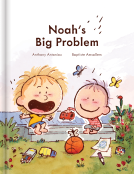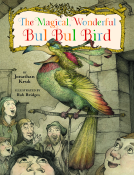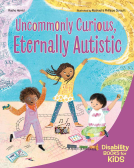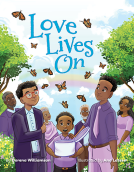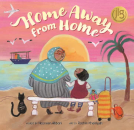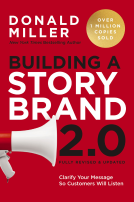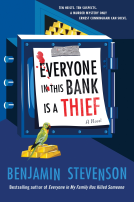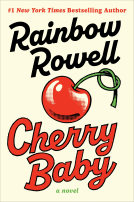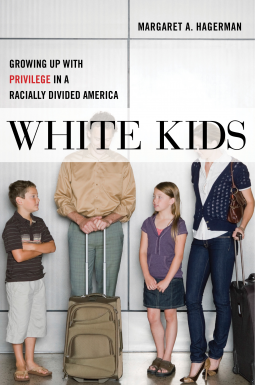
White Kids
Growing Up with Privilege in a Racially Divided America
by Margaret A. Hagerman
This title was previously available on NetGalley and is now archived.
Send NetGalley books directly to your Kindle or Kindle app
1
To read on a Kindle or Kindle app, please add kindle@netgalley.com as an approved email address to receive files in your Amazon account. Click here for step-by-step instructions.
2
Also find your Kindle email address within your Amazon account, and enter it here.
Pub Date Sep 04 2018 | Archive Date Apr 29 2019
Talking about this book? Use #WhiteKids #NetGalley. More hashtag tips!
Description
Winner, 2019 William J. Goode Book Award, given by the Family Section of the American Sociological Association
Finalist, 2019 C. Wright Mills Award, given by the Society for the Study of Social Problems
Riveting stories of how affluent, white children learn about race
American kids are living in a world of ongoing public debates about race, daily displays of racial injustice, and for some, an increased awareness surrounding diversity and inclusion. In this heated context, sociologist Margaret A. Hagerman zeroes in on affluent, white kids to observe how they make sense of privilege, unequal educational opportunities, and police violence. In fascinating detail, Hagerman considers the role that they and their families play in the reproduction of racism and racial inequality in America.
White Kids, based on two years of research involving in-depth interviews with white kids and their families, is a clear-eyed and sometimes shocking account of how white kids learn about race. In doing so, this book explores questions such as, “How do white kids learn about race when they grow up in families that do not talk openly about race or acknowledge its impact?” and “What about children growing up in families with parents who consider themselves to be ‘anti-racist’?”
Featuring the actual voices of young, affluent white kids and what they think about race, racism, inequality, and privilege, White Kids illuminates how white racial socialization is much more dynamic, complex, and varied than previously recognized. It is a process that stretches beyond white parents’ explicit conversations with their white children and includes not only the choices parents make about neighborhoods, schools, peer groups, extracurricular activities, and media, but also the choices made by the kids themselves. By interviewing kids who are growing up in different racial contexts—from racially segregated to meaningfully integrated and from politically progressive to conservative—this important book documents key differences in the outcomes of white racial socialization across families. And by observing families in their everyday lives, this book explores the extent to which white families, even those with anti-racist intentions, reproduce and reinforce the forms of inequality they say they reject.
Advance Praise
"[Hagerman] examines how affluent white children think about race. [The author] spent two years immersed with 30 privileged white Midwestern families to produce this timely...study. [S]he provides revealing portraits….[and] is especially good on the ‘conundrum of privilege’….A complex and nuanced...book."--Kirkus Reviews
Available Editions
| EDITION | Other Format |
| ISBN | 9781479803682 |
| PRICE | $98.00 (USD) |
| PAGES | 280 |
Links
Average rating from 32 members
Featured Reviews
 Lindsay W, Reviewer
Lindsay W, Reviewer
I'm a teacher, and in my years in the classroom, I have taught in wildly different environments. A couple of my schools had mostly black students by design, but the others were heavily white. All were private schools. I'm black, so I've navigated these varied spaces with my own form of privilege: I don't need to see people who have the same color skin as I do to feel like I belong, and yet I know that racial "color blindness" isn't a thing. I might be comfortable in white spaces, but that doesn't mean I don't know those spaces are white.
White people may not usually face racism to the extent that non-white people do, but that doesn't mean that race doesn't apply to them. Being the racial majority affords its own obvious privileges, which Hagerman does an excellent job of detailing and cataloguing. For middle-schoolers, the task of identity formation is even more difficult than it might be otherwise. Because they live in a world where—like it or not—race matters, they also have to figure out how race factors into their identities. I was intrigued to read the detailed stories and quotations in this book from people are in the majority and are still making choices and building lives in a racially-driven society.
I found myself nodding along through much of the book. It's a shame that some white people who inhabit mostly all-white spaces think that the mere act of discussing race is racist in and of itself. It's a paradox that the people who benefit the most from racial structures in society (such as generational wealth) have the most interest in protecting those structures (to maintain their wealth) as well as the most agency to change them (which might threaten their wealth or opportunities). It's understandable to want what's best for your kids and to do whatever is necessary in order to help them prosper, but it makes a big difference when you started out with a lot yourself.
Hagerman doesn't offer many solutions to the problem of building race-consciousness in early adolescents, but she paints rich pictures of real people's lives. Racial stereotypes are caricatures, so they can only carry the discussion so far. Her work offers us round characters from the white side of the tracks in a world where more minority actors are stepping into the spotlight. Let's see how the action unfolds.
 Librarian 391714
Librarian 391714
In White Kids, Hagerman seeks to understand what white children growing up in the current political climate are experiencing and how growing up in this will affect their power and influence as adults. I can go into detail about Hagerman's research to study children on their journey throughout middle school. An age when children begin thinking in ideological terms and start to consider others around them in new ways. But really, just look at the news from any time during the last 1 year, 188 days, 9 hours, 50 minutes since Trump took office and you can see that Hagerman is addressing a widespread problem in "white culture" that begins at an early age.
I'm going to put this right here.
<i> Some of these kids believe that talking about race "makes you racist," while other children think white people need to talk and think carefully about race much more often. Some children think that black people have "extra muscles" that make them jump higher, while other children think this is absurd. While some of these children believe people get rich because they work hard, some have other ideas about the causes of social stratification. </i>
Yes, she is talking about children but there are grown ass adults out there that believe this stuff. IF that doesn't frighten you enough to read this book then I don't know what will.
 Reviewer 250689
Reviewer 250689
A sociologist studies a group of white, affluent middle schoolers and their parents growing up in the Midwest. She chronicles their experiences and opinions about race and racism in their schools and communities. While these families live near each other, the beliefs and attitudes vary, mainly by neighborhood and/or school attendance. The study seeks to determine whether the attitudes on racism are perpetuated by parents, environment, friends, or a combination of all of these factors.
This book has given me a lot to think about as both a white person and the parent of white children. I have been examining my own prejudices, how to raise my kids to understand our country's history and the injustices that have been and continue to be perpetrated, and find ways we can positively impact the efforts for awareness and change.
Important book for white families to read and think about as they raise their kids. A detailed look at the way racial ideology and values are passed from one generation to the next.
 Jeff L, Reviewer
Jeff L, Reviewer
I really appreciated the work that Hagerman put into this book. Though I didn't think the subtitle "Growing up with privilege..." accurately describes the content because it's not really about white kids growing up (process/experience)-- it's about their perceptions of others and ultimately how their views change or are cemented early in life. So from that standpoint, it might be a little misleading.
I've spent a lot of time in my life, reading and thinking about racism, trying to understand its existence and implications-- this book reveals so many of the questions and conclusions-- the paradoxes that have arisen in my own thinking.
There are no cut and dried answers here. This is not a 'how to' for parents. Racism runs so deep through our society, as do issues of class and even appearance that solving the problems that prevent understanding, equality and acceptance of ALL PEOPLE regardless of their differences, will always be a challenge as long as society continues to judge.
This book does an incredible job of analyzing where we are today and how, in spite of the very best intentions, racism is still a very present part of our lives, most definitely defined at a young age. I think it is important to note that this book is not and does not make white people out to be 'evil perpetrators'-- the assumed white superiority or privilege, is looked at and examined in an effort to bridge the inequalities that exist.
I received an arc copy of the book from the publisher through NetGalley in exchange for an honest review.
 Reviewer 132350
Reviewer 132350
4* Kind of shocking, kind of sad, and kind of 'Really, people? The blind leading the blind'.
This is well-written and has a decent cross section of kids, examples and families for the author's research to be authentic, but it has to be born in mind that she's chosen to focus on middle class kids for the most, in a middle class area and at times, I thought that both the kids and their parents were a little... vapid, reminding me of US socialites and would-be socialites as portrayed on TV. They felt 'not real people, not real world'. And I say this as a woman from an ethnic minority, who's lived in London for almost her entire life, and whose mother (and her generation) practice their own form of racism by refusing to integrate wholly into their adopted country.
Some of the parents portrayed had great intentions, but were racist without realising they were being so, not in deed, not outrightly so, but in thought and in their perceptions and beliefs that they passed on to their children. Some welcomed non-Caucasian kids into their households, but there was a feeling of bourgeoisie and it was clear that they wouldn't allow their own kids to visit/socialise outside of their sphere of control.
Some of the kids were clearly not sheeples and had done their own research/reading and believed, and saw, that racism exists, but others were firm believers in mummy and daddy and the area in which they lived and believed that racism is non-existent. They could be excused, as they'd been born into relative privilege and had been cushioned, but it did make me wonder what kinds of human beings they'd grow into to and if they'd do more harm than good when later trying to do good. Some kids did surprise me in their perceptiveness and desire to be activists of a sort, but this was shut down by schools (teachers, dos and don'ts) and parents.
I think it'd be interesting to see this kids some 5yrs or so down the line, once RL has had an impact on them. I'd have liked to see more of a cross-sectional part of the US portrayed, and not Whitesville.
ARC courtesy of the publisher and NetGalley, for my reading pleasure.
 Julie P, Librarian
Julie P, Librarian
That this study is comprised of rich ethnographic accounts of children's racial ideologies is what makes it so jaw-droppingly impactful. To hear racial ideologies literally from the mouths of babes makes abundantly clear the fallacy of the post-racial society. What an important contribution this book makes. That this study is comprised of rich ethnographic accounts of children's racial ideologies is what makes it so jaw-droppingly impactful. To hear racial ideologies literally from the mouths of babes makes abundantly clear the fallacy of the post-racial society. What an important contribution this book makes. That this study is comprised of rich ethnographic accounts of children's racial ideologies is what makes it so jaw-droppingly impactful. To hear racial ideologies literally from the mouths of babes makes abundantly clear the fallacy of the post-racial society. What an important contribution this book makes. That this study is comprised of rich ethnographic accounts of children's racial ideologies is what makes it so jaw-droppingly impactful. To hear racial ideologies literally from the mouths of babes makes abundantly clear the fallacy of the post-racial society. What an important contribution this book makes. That this study is comprised of rich ethnographic accounts of children's racial ideologies is what makes it so jaw-droppingly impactful. To hear racial ideologies literally from the mouths of babes makes abundantly clear the fallacy of the post-racial society. What an important contribution this book makes.
 Cynthia D, Reviewer
Cynthia D, Reviewer
A very intriguing look at race and class in a small-enough geographic area. It's interesting to see the author talk with white families of different types and backgrounds; there were some parts that did aggravate me given my background (having lived in affluent and non-affluent areas, straddling the line as a biracial person) but was not surprising. I feel that there were some major similarities between the neighborhoods in the book and living in the SF Bay Area, which was very interesting to read. If you're interested in the intersection of race and class, read this.
 catherine h, Reviewer
catherine h, Reviewer
Illuminating book to a degree. I am far from affluent but have heard this language my whole life. I'm not perfect, but I am educated to the social issues among minorities in my own community and sure they apply to others. I am familiar with the coded conversations and often hear them among parents, my family and friends , and neighbors. Margaret Hagerman has written a very well researched report, in my opinion. It is certainly worth a read by the folks in those affluent communities (I know way too many of them....) but seriously doubt they'd recognize themselves (or they would, but would argue until they are blue in the face they aren't like that!) Racism is not going away any time soon, it's just gotten a bit more covert.
Readers who liked this book also liked:
Anthony Antoniou; ; Anthony Antoniou
Children's Fiction
Rasha Hamid
Children's Fiction, Health, Mind & Body, OwnVoices
Benjamin Stevenson
General Fiction (Adult), Humor & Satire, Mystery & Thrillers
